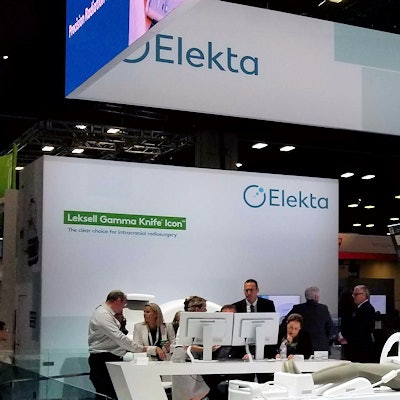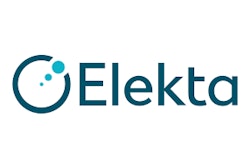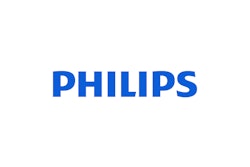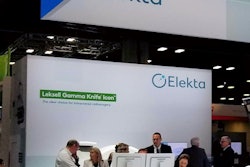
Radiation oncology vendor Elekta is highlighting the findings covered in nearly a dozen abstracts on its Elekta Unity radiation therapy system that were presented at the 2018 American Society for Radiation Oncology (ASTRO) meeting in San Antonio.
Unity is an MR-guided radiation therapy system that was first introduced at the 2017 European Society for Radiotherapy and Oncology (ESTRO) meeting. The system combines a diagnostic-quality 1.5-telsa MRI scanner with a linear accelerator (linac) to provide MRI-guided radiation therapy treatments. Unity has received the CE Mark and is awaiting U.S. clearance.
At the ASTRO conference, Elekta highlighted research underway with Unity that shows how MR-guided radiation therapy can address some of the historical challenges to providing treatments that are effective and also spare nearby healthy tissue. Many of the papers were the product of the Elekta MR-Linac Consortium, a network that Elekta formed with its technology partner Philips Healthcare and seven clinical centers.
For example, in one abstract, researchers examined the use of cine MRI datasets acquired during simulation radiation therapy to select 10 fractions of treatment for patients with pancreatic cancer. The datasets were analyzed for various organs and types of motion, such as breathing and peristalsis. The findings could help analyze how different types of motion should be managed during radiation therapy.
In another paper, researchers looked at the optimal MR sequences to use on the MR-linac platform. Eighteen healthy volunteers underwent imaging with a variety of sequences, and the resulting images were analyzed and rated by specialists from different specialty areas. The results showed that most expert observers preferred T2-weighted 3D sequences; fellows specializing in breast care preferred T1-weighted imaging, while those in abdominal imaging preferred triggered image acquisitions.



















